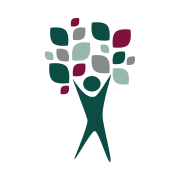Job Description Summary
The Clinical Nurse Practice Expert (CNPE) reports to the Unit Manager. Under limited supervision, the CNPE is responsible to function as a member of a multi-disciplinary, unit based team to provide nursing expertise for a defined microsystem. This position leads quality care initiatives to improve patient outcomes and patient safety. This role collaborates in staff and patient education activities to include orientation onboarding, competency management, education, evidenced-based practice/ quality role development.
Entity
Medical University Hospital Authority (MUHA)
Worker Type
Employee
Worker Sub-Type
Regular
Cost Center
CC004773 ORBG - Emergency Room
Pay Rate Type
Salary
Pay Grade
Health-28
Scheduled Weekly Hours
40
Work Shift
Job Description
ESSENTIAL FUNCTIONS: The percentage of time spent performing essential functions is 95%. Qualified individuals must have the ability (with or without reasonable accommodation) to perform the following duties:
Orientation Onboarding:
• Identification of potential preceptors (preceptors who meet the criteria) and skills validators in collaboration with unit manager.
• In collaboration with NPDP, facilitation of unit specific procedure or equipment training required for orientation; i.e. low volume-high risk
• Contribute and ensure content accuracy for unit specific CBO performance criteria and resources
Competency Management:
Performs as and identifies/trains additional skills validators on the unit
• Maintain content integrity of population based competencies
• In collaboration with the NPDP, provides additional remediation/education plan experiences for clinical staff
Education:
• Serves as instructor and/or provides content expertise for live and online organizational programs as needed based on clinical expertise, knowledge, and skills
• Provides “just in time” teaching as needed for complex and/or new procedures, product, equipment.
• Promotes the development of critical thinking and nursing judgement in collaboration with physicians and APRNs with complicated patients and/ or practice issues.
Evidence-based Practice/Quality:
• Use performance measures to assess and improve the delivery of evidence-based practices and promote outcomes that demonstrate delivery of higher-value care.
• Use evidence to design and direct system improvements that address trends in safety and quality.
• Implement quality improvement strategies based on current evidence, analytics, and risk anticipation.
• Apply just culture principles and the use of safety tools, such as Failure Mode Effects Analysis (FMEA) and root cause analysis (RCA), to anticipate, intervene and decrease risk.
• Evaluate patient handoffs and transitions of care to improve outcomes.
• Evaluate medication reconciliation and administration processes, to enhance the safe use of medications across the continuum of care.
• Use a variety of datasets, such as Hospital Consumer Assessment of Healthcare Providers and Systems (HCAHPS), nurse sensitive indicators, National Data Nursing Quality Improvement (NDNQI), and population registries, appropriate for the patient population, setting, and organization to assess individual and population risks and care outcomes.
• Use information technology, analytics, and evaluation methods to:
a. collect or access appropriate and accurate data to generate evidence for nursing practice;
b. provide input in the design of databases that generate meaningful evidence for practice;
c. collaborate to analyze data from practice and system performance;
d. design evidence-based interventions in collaboration with the health professional team;
e. examine patterns of behavior and outcomes; and
f. identify gaps in evidence for practice
Role development:
· Demonstrate coaching skills to support new and current clinical ladder candidates to improving clinical care processes and outcomes.
NON-ESSENTIAL FUNCTIONS: The percentage of time spent performing secondary functions is 5%. The following duties are considered secondary to the essential duties listed above:
Perform other duties as assigned.
Additional Job Description
BSN required and completion of MSN or graduate degree in related field acceptable from an accredited college/university within four years. Two years of clinical experience in area of expertise required. Successful completion of RN III Clinical Ladder advancement within 2 years in position required. Excellent collaboration and consultation skills required. Excellent communication and teamwork skills required. Basic computer knowledge including Microsoft Office. Familiar with quality improvement methodology. Advanced certification in a specialized field preferred. Current South Carolina licensure as a registered nurse or compact state required. Current Basic Life Support (BLS) required, either a certification from an American Heart Association (AHA) BLS for Healthcare Providers (or AHA recognized equivalent) or an American Red Cross CPR/AED for Professional Rescuer and Healthcare Provider.
If you like working with energetic enthusiastic individuals, you will enjoy your career with us!
The Medical University of South Carolina is an Equal Opportunity Employer. MUSC does not discriminate on the basis of race, color, religion or belief, age, sex, national origin, gender identity, sexual orientation, disability, protected veteran status, family or parental status, or any other status protected by state laws and/or federal regulations. All qualified applicants are encouraged to apply and will receive consideration for employment based upon applicable qualifications, merit and business need.
Medical University of South Carolina participates in the federal E-Verify program to confirm the identity and employment authorization of all newly hired employees. For further information about the E-Verify program, please click here: http://www.uscis.gov/e-verify/employees









